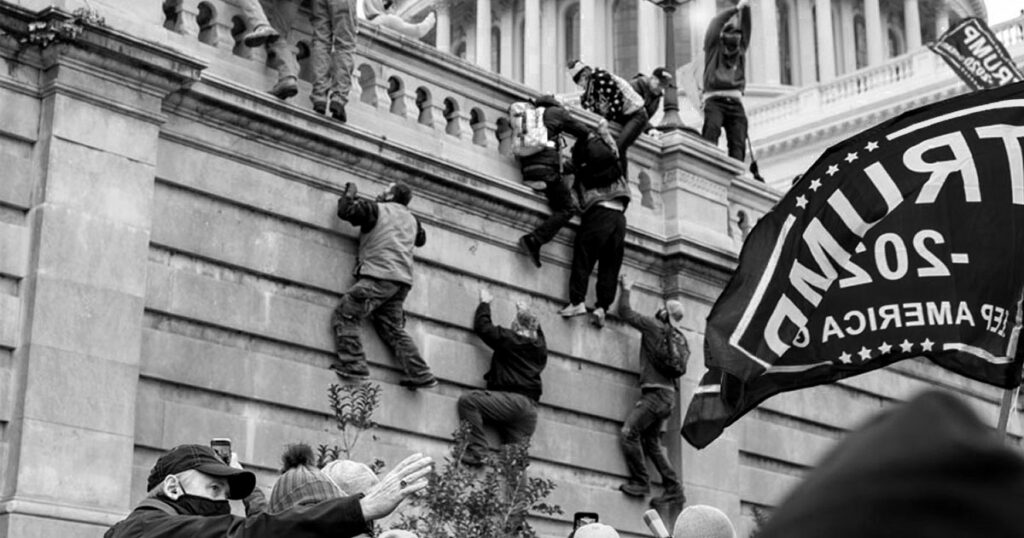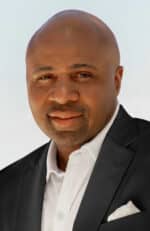Blog
The Malice of One and the Silence of Many: January 6th is the Emblematic Expression of America’s Historic Tension

The violent attack on Capitol Hill on Jan. 6, 2021 was a stark reminder of America’s historic tensions and struggles. The storming of the Capitol came amid a Pro-Trump protest, by a predominantly white and male group of domestic terrorists. Their white privilege assured they could go beyond the police barriers of perimeter and enter the Capitol Building. In the end, many people were injured and five killed, including a Capitol police officer.
What happened is reminiscent of this nation’s historic struggles with race, racism, power, and privilege. For instance, over 150 years ago, a group of southern, Confederate flag-carrying insurgents led the nation into a Civil War. Years later, America is once again met with a similar group of Confederate flag-toting individuals who would rather have no America than exist in an evolving one.
While the pretext for the Capitol riot was to overturn the results of the 2020 presidential election, the protesters’ words proved that this was less about their candidate losing an election and more about their collective sense of losing their America.
While there is a clear history of violence on American shores, scores of elected officials claimed that the events on Jan. 6 did not represent America or the people of America. While I firmly believe there are indeed more people committed to love and justice in America, what happened at the Capitol last Thursday — as well as the violence that greeted Black Lives Matter demonstrators in D.C. this summer — is evidence of society’s clear hierarchy of human value and tolerance for white supremacy. If we are honest, we will admit this as real part of our America today as it was for our yesterdays.
As we make sense of this moment for ourselves as well as a generation of children and students, there are five areas we must highlight.
- The insurgence happens before the violence. While we fixate on the acts on January 6, this insurgence began well before that day. The insurgence includes people who were on the ground, scaling the Capitol walls, wearing bullet-proof vests and gas masks, but also so many others. Many of those who set the conditions for such an illegal insurgence wear D.C.’s finest suits, permissibly walk the halls of the Capitol, and choose to use their positions of leadership to instigate actions which oppress, rather than promote, a working democracy. They may not have physically carried Confederate or Trump flags, but they spread misinformation and conspiracy theories when the accountable thing for them to do was to dispel lies, elevate facts, and defend democracy. Others displayed an outward silence, even when the duty of their positions demanded they speak truth in defense of democracy.
- Misinformation as a tool has always existed. Unfortunately, the elevation of misinformation isn’t a new method of attack. Throughout history, both globally and domestically, peddling conspiracy theories and disproven information has been the main tool used by those seeking to maintain a level of power and dominance that neither their accomplishments, humanity nor an equitable and just democracy would warrant.Misinformation was the tool used to justify segregation and the inferior treatment of Black people. Narratives that Black people were less intelligent, more violent and posed a threat to civil society were intentionally promulgated to provide cover for discriminatory treatment and racist policies. Similar narratives advanced by white men — that women were weaker, not as strategic, didn’t work as hard, etc. — were used to trap women below America’s glass ceilings. Smear campaigns against persons not born in this country have been used to demonize immigration. There will likely always be individuals who peddle in malice and misinformation. Yet it is ultimately the silence of many that gives such narratives the momentum to weaken our democracy.
- Silence in the face of dangerous misinformation is a violent act within democracy. Truth is a necessary cornerstone of democracy. Persons of goodwill cannot claim to love democracy but maintain silence in the face of misinformation. If we truly care about strengthening our democracy, we must concretize some of the core pillars of a democracy. Thomas Jefferson said democracy requires maintaining an educated citizenry. This is a core part of the work that the Schott Foundation has committed to resource. We are doing our part to ensure access to high quality public education for all students. Inherent in the need for educated citizenry is truth. It is clearer than ever how the impact of consistent 24/7 promotion of non-facts through TV and their viral promotion on social media can lead people to question the very essence of our democracy. This has, and will always, lead to violent attacks against the core institutions of our democracy. Bold steps must be taken to regulate the flow of misinformation through social media, TV and in formal congressional debates.
- Bold and accountable leadership is needed. All leaders have an obligation to directly engage and hold their supporters to a democratic standard. During several civil rights protests in the 1960s, when protestors were tempted to turn violent, it was bold leaders like the Rev. Dr. Martin Luther King, Jr. and John Lewis who directly challenged participants who claimed the ends justified the means. Even the late Senator John McCain showed this type of leadership when he interrupted and corrected a supporter who shared a racist comment about then-presidential candidate Barack Obama. In that moment, McCain reaffirmed a standard of fairness and truthfulness. His desire to win was not bigger than our democracy.Contrast that to what happened on January 6. Of the elected officials who riled up their supporters with long-disproven lies stoking the flames of hatred and division, not one of them challenged the mob or tried to stop their illegal activity. They left the Capitol police to put their lives on the line to manage the flames that they started.
- Politicians must maintain a love for humanity. Love for humanity must be at the center of our political discourse, values and policies. Congressman Josh Hawley from Missouri incorrectly asserted on the floor of Congress on Thursday night that violence is not America. To the contrary, violence has been a vehicle that has too often been used to shape America. From the seizure of land, to free slave labor, to overpoliced communities, America is characteristically violent. Our work is not to ignore this history but to confront it, and decouple it from our American ideals.
American children and students should be reminded that the events at the Capitol are clear evidence that making a democracy work requires more than an election. Central to societal advancement is understanding our history, reining in campaigns of misinformation, refusing silence in the face of injustice, bold and accountable leadership, and most important an unceasing love for humanity beyond all else. While this is a valley moment in American history, it is also a moment that, with an informed and motivated new generation, we can overcome.
Photo by Blink O’fanaye.



